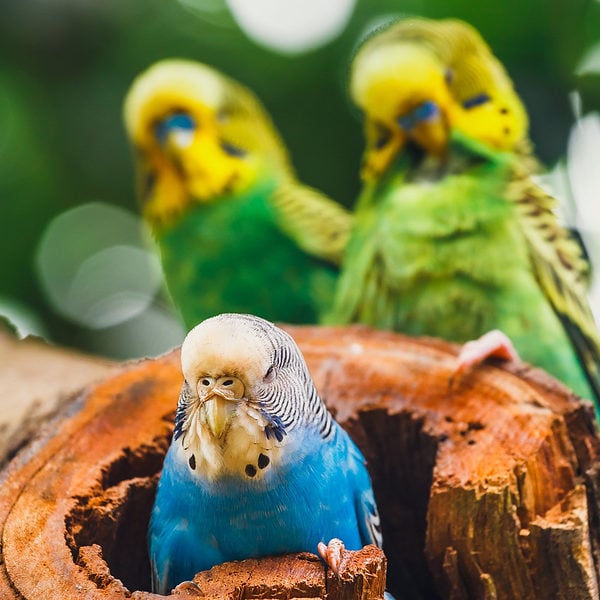Last Updated on by Mitch Rezman
One of the best ways to ensure your bird’s good health is to weigh it on a regular basis.
By using a good quality gram scale (you don’t have to spend a lot of money on it) you will have one of the best preventative health tools that can provide red flags to any potential problems before they develop into something a bit more serious.
We don’t recommend using a spring-based scale used for measuring kitchen ingredients because we are seeking accuracy.
Your avian vet should have a record of your bird’s weight. If not, just start weighing your bird at least once a week. What should you look for in terms of weight change? Best practices dictate that a change in weight of 10% in either direction should alert you to get in touch with your veterinarian. Weight loss can indicate any number of things including infectious diseases like aspergillosis, infestation with parasites, competing for food with other birds in the cage, tumors, and even beak problems.
Keep in mind the bird might still be eating and at the same time, drop in weight if it is ill. In many cases, birds cannot take in enough calories to ward off infection and maintain their weight.
This doesn’t always happen rapidly but sometimes gradually especially if your bird has a low-grade infection. If your bird experiences weight loss rapidly, this is a red flag and time to call your vet. Conversely, if the weight loss is gradual this can also be an indicator that your bird is not well.
Many people say “my bird looks just fine” and that can be a problem because one of the best natural defense mechanisms bird’s have is to not look sick so they don’t look weak to their prey. It’s not uncommon especially for small species like budgies to just keel over without any warning whatsoever.
If your bird gains weight very rapidly this might indicate that they may be preparing to lay an egg. Birds that start drinking a lot of water, possibly become little territorial in the cage, plucking chest feathers, and if you’re seeing large bad smelling poop, chances are your bird is getting ready to lay eggs.
Many of our customers are concerned about finding the right kind of perch to put on their scale in order to way larger birds especially Macaws with long tails. It’s really not a big issue and we show you how to do it in the video below.
Author Profile
Latest entries
 Feeding Exotic BirdsDecember 29, 2025How to Switch or Convert Your Bird From Seeds to Pellets: Real-Life Case Studies and Practical Guidance
Feeding Exotic BirdsDecember 29, 2025How to Switch or Convert Your Bird From Seeds to Pellets: Real-Life Case Studies and Practical Guidance Feeding Exotic BirdsDecember 16, 2025A Practical, Budget-Smart Guide to Feeding Birds Well
Feeding Exotic BirdsDecember 16, 2025A Practical, Budget-Smart Guide to Feeding Birds Well Bird EnviornmentsDecember 7, 2025Understanding Budgie Cage Bar Orientation: Myths, Realities & Practical Solutions for Vertical-Bar Bird Cages
Bird EnviornmentsDecember 7, 2025Understanding Budgie Cage Bar Orientation: Myths, Realities & Practical Solutions for Vertical-Bar Bird Cages Feeding Exotic BirdsDecember 5, 2025How Dr. T.J. Lafeber Rewrote the Future of Pet Bird Nutrition
Feeding Exotic BirdsDecember 5, 2025How Dr. T.J. Lafeber Rewrote the Future of Pet Bird Nutrition



